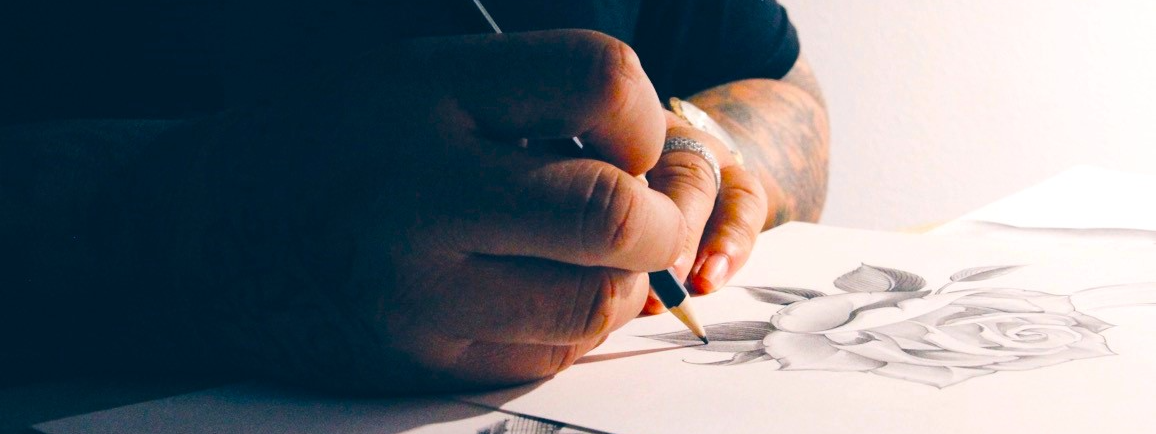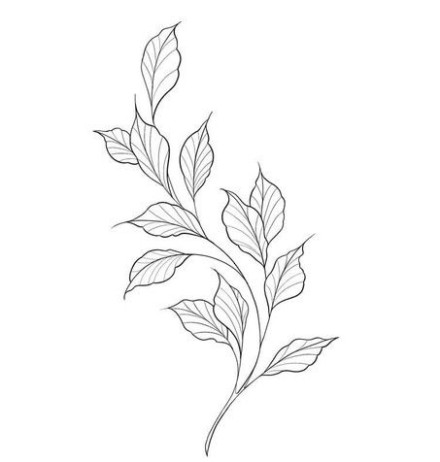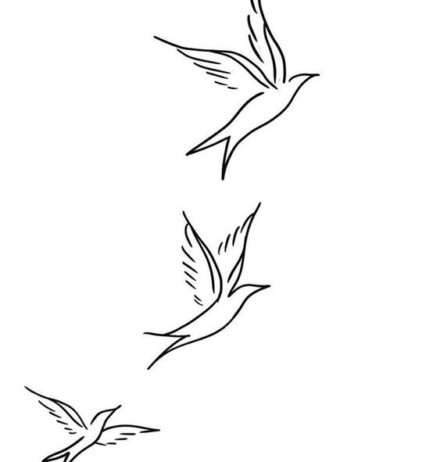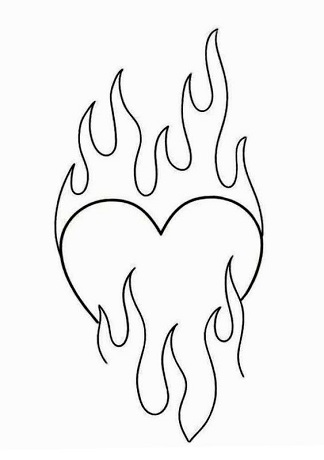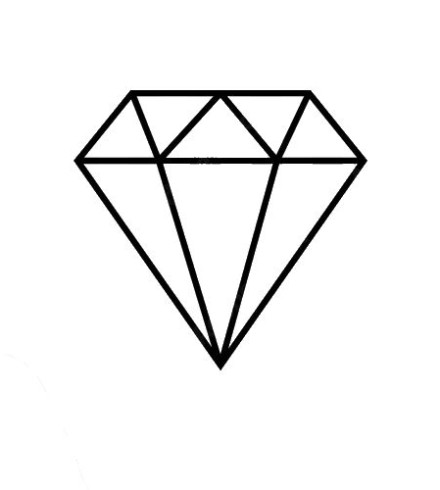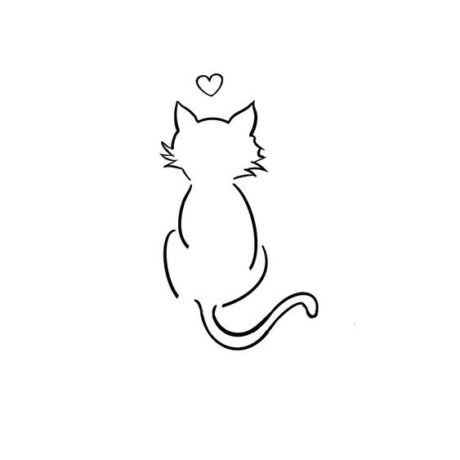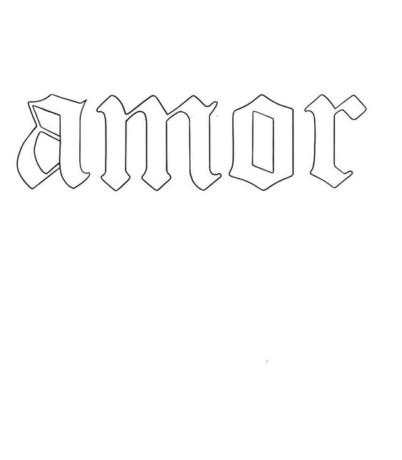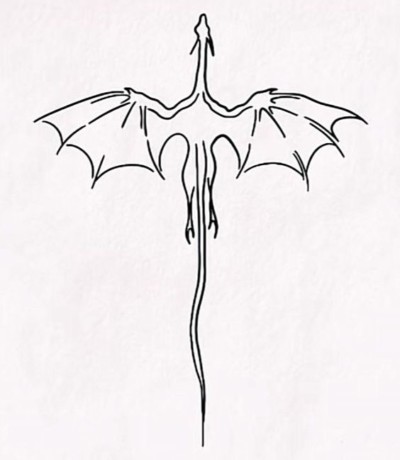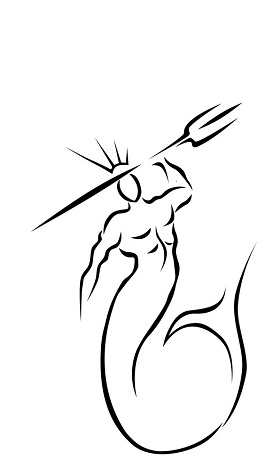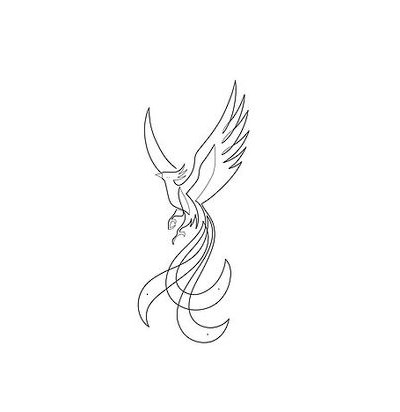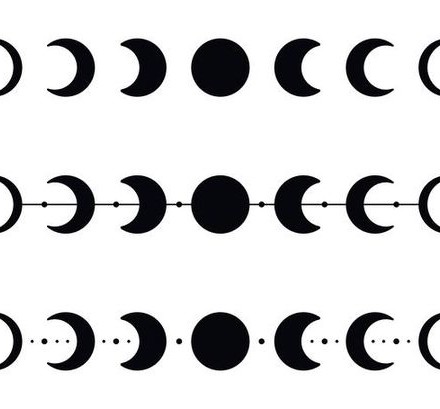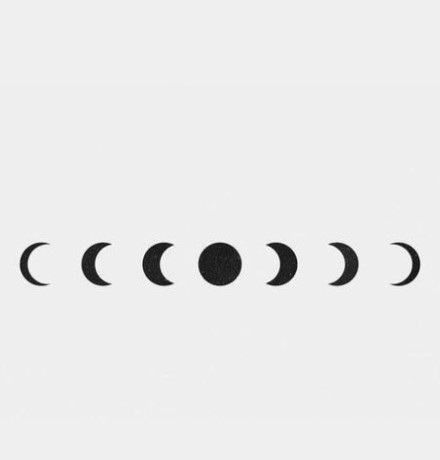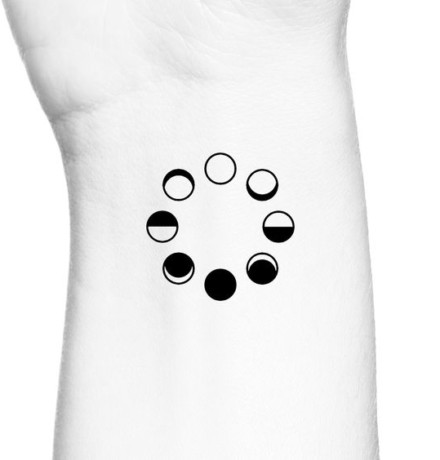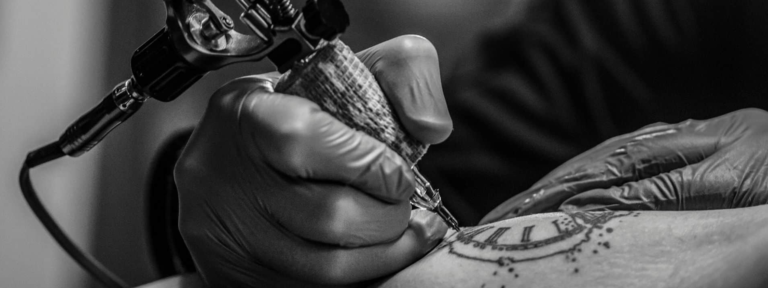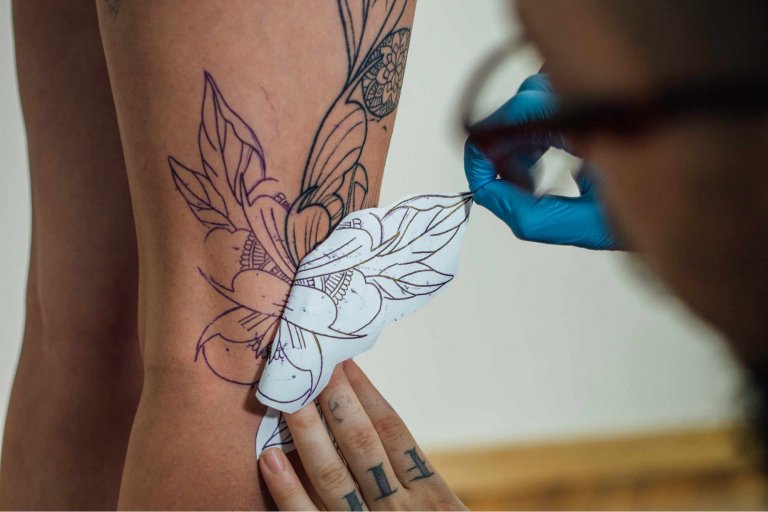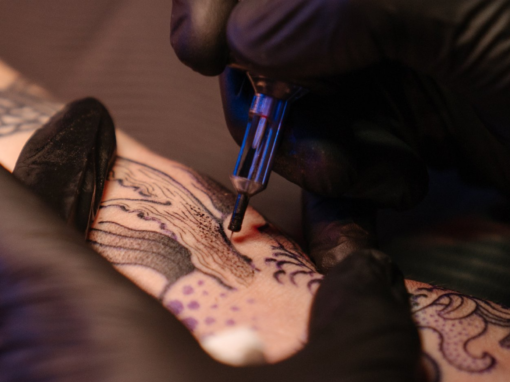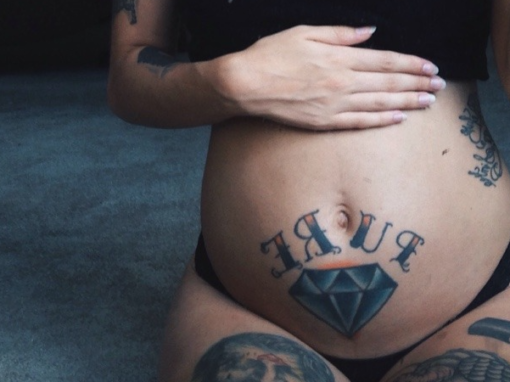Whether you’re a budding professional or looking to dabble in DIY designs, you’re in for a treat! We’re about to dive into the exciting world of simple tattoo outlines that pack a punch.
Imagine creating stunning designs with just a few strokes — sounds too good to be true? Not anymore! This guide is your golden ticket to mastering easy, eye-catching line work that’ll make heads turn.
The ideas of easy tattoo outlines for beginners below provide an excellent foundation for your practice. Along with these designs, we’re arming you with insider tips on how to prepare and use a tattoo stencil and avoid common mistakes that newcomers often make. We’re excited to share this valuable information with you, so get ready to learn and explore!
What Are Tattoo Stencils and Outlines
We’ve been teasing you with promises, but now it’s time to dive into the nitty-gritty of tattoo outlines and stencils.
Let’s kick things off with the tattoo outlines, which are the first step in the tattooing process. They are the skeleton, the backbone of your design, providing integrity and proportion. Usually crafted in one continuous line, they can range from simple to mind-bogglingly complex. For you beginners out there, simple outlines are your new best friend. They’re perfect for honing your skills before you dive into the deep end of shading and coloring.
Tattoo stencils are templates that tattoo artists use to transfer the design onto the skin. Imagine them as a temporary roadmap guiding you to permanent art glory.
Suppose you are wondering what the paper for tattoo stencils looks like. Imagine four layers: on top, you’ve got your blank canvas — a white sheet ready for your artistic genius. Next up is a protective layer, keeping your masterpiece pristine. Beneath that lies the real MVP — the carbon sheet. And finally, another protective layer to keep everything in check.

To use it, you trace your design onto the top sheet, which transfers the carbon ink onto the stencil paper. Then, you apply the stencil to the skin, transferring the design outline for tattooing.
The Perks of Drawing Stencils
Ever heard of freehand tattooing? It’s when artists channel their inner Picasso and draw directly on the client’s skin with a special marker. Sounds cool, right? But hold your horses! This technique requires Jedi-level skills and oodles of practice. If you’re just dipping your toes into the tattoo world, your journey should start with simple outlines and stencils. Let’s dive into the awesome advantages of drawing stencils:
✍️ Precision perfection
Stencils are your secret weapon for nailing those crisp, consistent lines every single time.
⏳ Efficient use of time
Why spend hours freehand when you can use a stencil? It’s like having a fast-forward button for your tattoo outline process.
? Level up your skills
Repeating outlining and stenciling is like boot camp for your hand-eye coordination and understanding the basics of tattooing, such as proportion and line work.
? Reducing errors
Stencils are like a safety net for your designs. They dramatically reduce the risk of placement blunders and proportion disasters.
? Satisfied clients
Clients can see the placement of the design before the needle even touches their skin, allowing them to make adjustments and be sure they are happy with the result.
✨ Creativity and customization options
Think of stencils as your artistic playground. Mix, match, add, subtract — the possibilities are endless! Create unique pieces that’ll make jaws drop.
Pre-Work Steps for Using a Tattoo Stencil

The process of applying a tattoo stencil to the body differs from applying it to artificial skin, primarily in the number of preparation steps. Here’s a breakdown of what you’ll need for each scenario:
For artificial skin (the rookie’s playground):
- 1. Your masterpiece design, ready for its debut
- 2. The medium to ferry your design onto the skin
- 3. The liquid that activates the transfer paper
- 4. Paper towels for cleaning and drying
For real skin (the big leagues):
- 1-3. Same steps
- 4. Alcohol pads to cleanse the tattoo area
- 5. A razor for shaving if necessary
- 6. Paper towels for cleaning and drying
- 7. Gloves — because hygiene is sexy and smudges are not
Where to Practice Your Skills
Get ready to level up your tattoo game! Before we dive into those easy outline tattoo stencil designs, let’s explore your practice playground. Here are 10 awesome ways to hone your skills without risking any real skin in the game.
1. Fake skin
Fake skin is specifically designed for tattoo practice, mimicking the texture and resistance of human skin. It allows beginners to practice needle depth and precision without the risk of hurting someone.
2. Fruits and vegetables
Fruits like oranges and bananas have a similar texture to human skin, making them ideal for practicing hand control and line work. They are also readily available and inexpensive.
3. Pig ears
Pig ears are often used because their texture closely resembles that of human skin, providing a realistic practice surface. They offer a more lifelike experience in terms of resistance and elasticity.
4. Synthetic arms and limbs
Synthetic limbs provide a 3D practice surface, allowing artists to get used to tattooing on curved and irregular surfaces. This helps in honing skills needed for actual human anatomy.
5. Friends or volunteers
Practicing on friends or volunteers gives real-time feedback and allows artists to understand the nuances of tattooing living skin, such as pain management and skin reactions. Just remember, with great power comes great responsibility (and maybe a few nervous friends).

6. Paper and tracing paper
Old school, but gold! Drawing on paper and tracing paper helps beginners perfect their designs and outlines before moving on to skin.
7. Tattoo practice apps
Digital apps offer a risk-free environment to practice designs and techniques. They often come with tutorials and tips, providing a comprehensive learning tool for beginners.
8. Practice mats
Practice mats made from synthetic materials allow repeated use and can simulate different skin textures. They are great for mastering various techniques and building confidence.
9. Leather
Leather has a texture somewhat similar to human skin, making it a good practice medium for beginners. It is durable and allows for repeated use, helping to build consistency and precision.
10. Tattoo sketchbooks
It’s like paper, but cooler! Tattoo sketchbooks are designed with special paper that mimics the resistance of skin. They are useful for practicing designs and getting accustomed to the feel of tattooing before moving to actual skin.
Easy Tattoo Stencil Ideas To Rock Your Tattoo World
Now that you’ve got the know-how, it’s time to let your creativity run wild! We’re about to dive into the treasure trove of easy tattoo outlines perfect for beginners. Whether you’re gearing up for your first tattoo or you’re an aspiring artist looking to practice, these simple designs are your ticket to tattoo stardom!
Popular and Easy Designs
Why reinvent the wheel when you can start with crowd-pleasers? These designs aren’t just easy on the eyes — they’re a breeze to stencil and tattoo. Perfect for building your confidence and skills without breaking a sweat!
Nature-Inspired Outlines
Nature is a timeless source of inspiration for tattoos. Simple outlines of mountains, trees, feathers, or leaves are easy to translate into stencils. These designs are like a choose-your-own-adventure book — start simple, then jazz them up with birds, animals, or whatever your heart desires.
Symbolic Shapes and Lines
Geometric shapes and symbols are another excellent choice for beginners. Think minimalist triangles, arrows, infinity symbols, or hearts. The best part? These geometric gems are like the Swiss Army knives of the tattoo world — they’re versatile, meaningful, and oh-so-stylish.
Classic Animal Outlines
The animal kingdom offers a wealth of simple outline ideas. Elephants, whales, cats, or even paw prints are popular choices due to their clean lines and recognizable forms. They can be scaled to fit different body parts and can hold symbolic meanings related to strength, loyalty, or freedom.
Lettering Art
Lettering can be so different if you let your imagine wander! This could be a single word, a meaningful phrase, or even Roman numerals. For starters, we advise choosing a clear and bold font for easy stenciling, and, of course, ensure the design fits your chosen body part comfortably.
Mythical Creatures
For those drawn to fantasy, simple outlines of mythical creatures like dragons, phoenixes, or unicorns offer a touch of magic. These designs can be surprisingly easy to translate into stencils, focusing on bold lines for the creature’s silhouette. They hold symbolic meanings associated with power, rebirth, or purity, making them a meaningful choice for some.
Celestial Objects
For astronomy enthusiasts, constellations offer a fascinating and relatively simple tattoo option. Constellations like the Big Dipper or Orion are easily translated into stencils, representing your birth sign or a special date.
Similarly, the moon’s phases can be easily converted into stencils and can be a subtle yet meaningful addition to your body. They can also be incorporated into nature-inspired designs, like a moon peeking through the trees, adding an extra layer of depth and personal significance to your tattoo.
Printable Options and Where to Find Them
To make your tattoo journey even easier, we’ve compiled a picture of beginner-friendly tattoo outlines. Whether you’re just starting or looking to expand your portfolio, these stencils provide a solid foundation for practice and creativity.
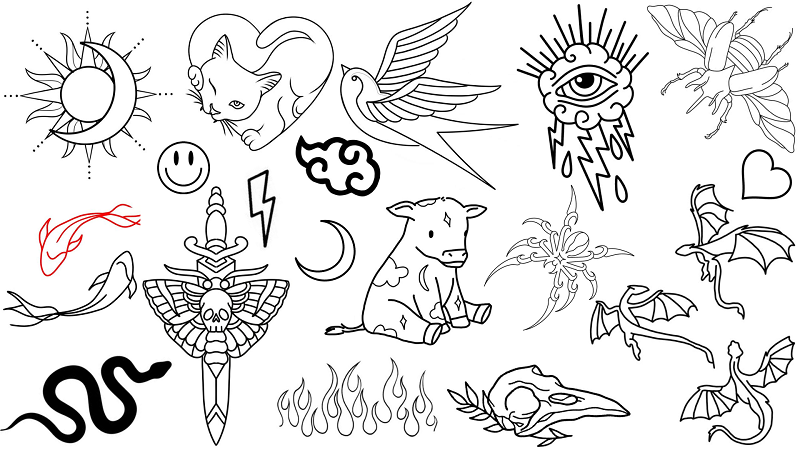
Tattoo outline sheet made by InkMatch
If you’re looking for more inky inspiration, here’s your treasure map to the best tattoo design resources:
- Tattoo websites offer extensive collections of tattoo designs, including stencils that you can purchase and download.
- Pinterest is a great platform for discovering a variety of tattoo designs and stencils. You can find boards dedicated to simple and beginner-friendly tattoos.
Many artists sell downloadable tattoo stencil packs on Etsy. These packs often include unique and customizable designs.
- Online forums like Reddit’s r/tattoos or tattoo artist communities often share free resources and design ideas.
Follow tattoo artists on Instagram and Facebook. Catch glimpses of their latest creations and snag printable stencils.
Remember, the perfect design is out there waiting for you. Happy hunting, future tattoo master!
Common Mistakes to Avoid with Beginner Tattoo Stencils
Think tattooing is as easy as pie? Well, hold your horses! While those designs might look simple, there are some rookie mistakes you’ll want to dodge. Let’s break them down so you don’t end up with any “oops” moments.
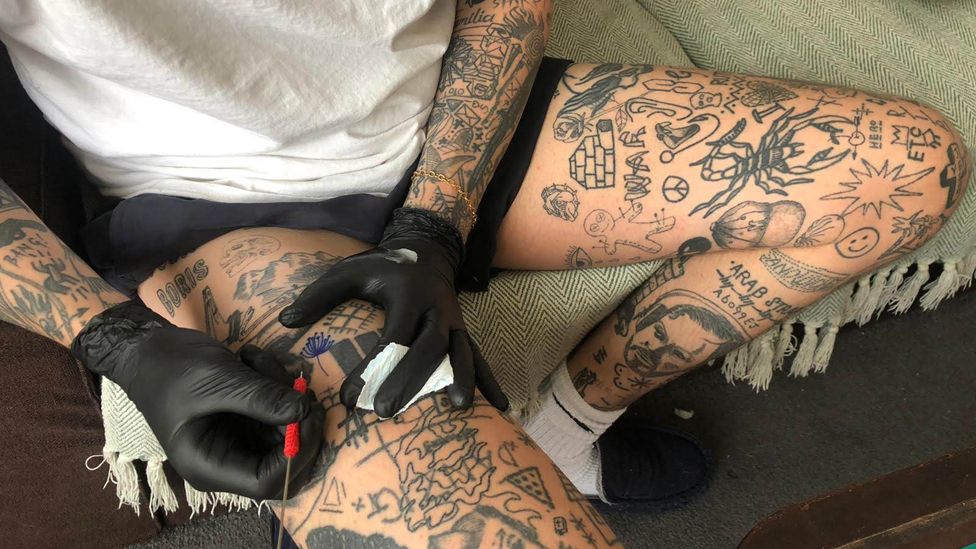
? Use stencils on yourself
Stencils aren’t your personal tattoo kit! Save them for practice on fake skin. Real tattoos need pro-level hygiene and skills. Trust us, your skin (and future self) will thank you!
? Ignore stencil placement
Consider how the design will look on your body in motion. That perfect stencil might look wonky when you flex. Chat with your artist about prime placement for 24/7 awesomeness.
? Use low-quality stencils
Blurry lines = messy tattoo. Invest in high-resolution stencils from reputable sources or have a professional artist create a custom stencil for your design.
? Rush the stencil application
Slow and steady wins the race! Take your sweet time placing that stencil. A crooked tattoo is forever, so double-check everything.
? Not prepare the skin
Oil and dirt are stencil kryptonite. So, give your skin a good scrub and dry-off before stencil time. Remember that clean skin means crisp lines!
Summary
This article has covered key aspects of getting started with easy tattoo outlines. We’ve explained tattoo stencils and outlines, highlighting their role as the foundation for any design. We’ve also explored various practice materials, from fake skin to tattoo sketchbooks, and provided popular and easy designs and resources where you can find more tattoo stencils to practice with, ensuring you have all the tools you need to refine your skills.
Remember, every skilled tattoo artist was once a beginner. With consistent practice, patience, and the right resources, you can develop the precision and creativity needed for impressive tattoos. Don’t be discouraged by mistakes — they’re part of learning. Keep practicing, stay inspired, and you’ll see your skills improve. You’ve got this!
FAQ
? What Is the Easiest Tattoo for a Beginner?
Simple designs with clean lines and minimal details, such as hearts, stars, or small symbols. These allow you to focus on mastering linework without feeling overwhelmed.
? What Are the Best Materials To Use for Practicing With Tattoo Stencils?
Grab some fake skin (synthetic practice material) and stencil transfer paper. You can find both online or at tattoo supply stores.
? How Do I Properly Transfer a Stencil Onto the Skin?
Stencil transfer requires care. Apply a thin layer of stencil transfer lotion to the skin, allow it to dry, then press the stencil firmly and remove it carefully.
❓ Can I Create My Tattoo Stencil Designs?
Yes, you can draw designs on stencil paper or use design software. Ensure the design has clean lines suitable for tattooing and will look good on the body.
